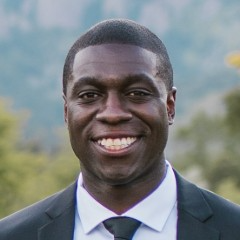Nana Osei-Opare to Give a Presentation, “The African Archive Exists: Calls Against Postcolonial African Archival Pessimism”
Thursday, November 12 | 12:00 pm PT | Via Zoom

For more information about this event, click here.
To register, visit https://ucla.zoom.us/webinar/register/WN_IM-O0FQoQXS0Iy4F2xh0Vw
From Professor Osei-Opare:
I will highlight the value and importance of postcolonial African archives in the construction of postcolonial African histories. Thus, I reject what I call ‘postcolonial African archival pessimism,’ the argument that postcolonial African archives are too disorganized or ill-kept to be of much, if any, value in configuring postcolonial African histories. Primarily through petition and complaint letters, I examine some ways Ghanaian workers protested racist and abusive workplace environments, government malfeasance, stagnating wages, and unfair dismissals in Kwame Nkrumah’s Ghana. These archival gems illuminate how workers made claims to and performances of citizenship and reminded the state of their importance, politically and practically, to building the Ghanaian project.
About Professor Osei-Opare:
Nana Osei-Opare is an Assistant Professor of African and Cold War History at Fordham University, New York City. He is currently working on a book manuscript entitled, Ghana’s Cold War: The Making of an African Citizen and State in the Cold War, 1957-1966. This work provides the first-ever comprehensive treatment of Ghana-Soviet relations and how those connections shaped Ghana’s political-economy, Pan-African program, and its modalities of citizenship during the Kwame Nkrumah era. Osei-Opare is also interested in questions of historical methodology and sources, and black political thought.
He has most recently published and has forthcoming articles and pieces in The Journal of African History, The Journal of West African History, Ufahamu: A Journal of African Studies, The Washington Post, and Foreign Policy Magazine. Osei-Opare received his Ph.D. in African history from the University of California, Los Angeles, and his A.M. and A.B.—with honors—degrees in History from Stanford University.
For questions/more information, contact:
UCLA African Studies Center | 10244 Bunche Hall | Los Angeles, CA 90095-1310 | Telephone: 323-335-9965
Website: http://www.international.ucla.edu/africa | email: sbreeding@international.ucla.edu

